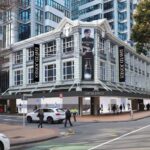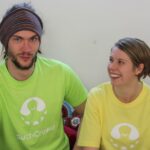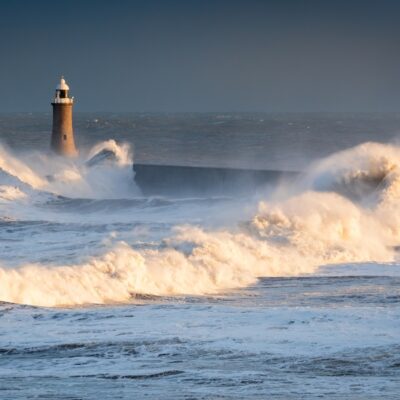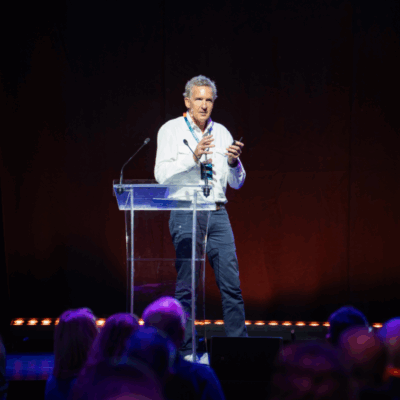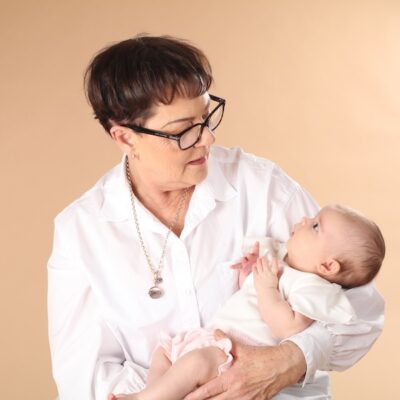Making magic with every vintage
It’s been a busy and successful decade since Rod McDonald won Winemaker of the Year. He talks about the past and the future of his Hawke’s Bay wine career. A […]
It’s been a busy and successful decade since Rod McDonald won Winemaker of the Year. He talks about the past and the future of his Hawke’s Bay wine career.
A record-breaking summer is set to translate into magic in wine bottles. So predicts Rod McDonald.
The award-winning Hawke’s Bay winemaker should know.
He has dedicated the past 23 years to creating delicious wine and has nabbed numerous successes along the way to prove his prowess.
A decade ago, he claimed the industry’s top prize at Winemaker of the Year at the Royal Easter Show, New Zealand’s longest running wine awards. At the time, he was Vidal Estate’s winemaker in Hawke’s Bay, where he worked for 13 years, including nine years as its winemaker.
Since then, he has established a thriving contract winemaking business, The Hawke’s Bay Wine Company in Napier, and has launched his Rod McDonald Wines label, producing Trademark, Te Awanga Estate, Quarter Acre and One Off.
He and business partner Mike Farrugia, who joined him in 2012, have long-term leases on about 50 hectares of vineyards in the Hawke’s Bay and are buying 25 hectares at Te Awanga Estate, home of its cellar door. They employ about 27 people year-round plus extras at harvest time.
A highly regarded wine judge, McDonald has just completed a seven-year stint as chairman of judges at the Hawke’s Bay Wine Awards and is a senior judge at the New Zealand International Wine Show.
Regardless of his vast experience, he admits it is a relief once all the grapes are safely off the vines. For him, May 3rd was that ‘phew day’ this year.
“It means we don’t have to worry about the rain or dodging frosts or the weather in general, which means you sleep better. It’s a nice time of year.”
Grapes hit their maximum flavour and sugar content in Autumn.
“It’s like apples – they start off the season really sour and as the season goes on, they accumulate sugar, the acid drops and the flavor builds.”
The key is picking them before their condition starts to decline.
But making great wine is so much more than just picking the best time to pick grapes. McDonald admits it helps that he has the land in his genes.
He spent his infancy on his parents’ sheep farm in Kauri, just north of Whangarei in Northland, where the main road is ironically called Vinegar Hill Road.
“My grandfather was a stock agent and his dad was a shepherd and then a farmer, so I always thought I’d have something to do with primary production in some way.”
The family moved to Hamilton when he was three, where he grew up.
By the time he left school in 1987, farming was in dire straits, so he started a Bachelor of Commerce degree at Canterbury University. He dropped out after a few years, but part-time work in restaurants and bars during those university years sparked an interest in wine, so he shifted to Auckland in 1990 to work in restaurants.
While he found it fascinating to be “at the pointy end” of the wine industry, watching people enjoy wine and seeing what they were willing to pay, he yearned to create the finished product.
McDonald got his first winery job in 1993 with de Redcliffe Estate, south west of Auckland near Pokeno, and after the vintage, Vidal Estate in Hawke’s Bay employed him to work at its cellar door.
Hooked for life
In 1995, he spent three months in France for a vintage in Burgundy and got “hooked” on the industry.
That stint has continued to impact on his dreams for New Zealand’s wine industry as an integral part of life.
“I guess what I saw is what it’s like when the wine industry is embedded into society and what wine can mean to people and what wine businesses can mean to communities.
“It’s the local rugby club here or the surf club in Australia. Everyone knows someone in France who works in a winery or can turn up and get juice at harvest time. It’s ingrained in their society.”
On his return, he became Vidal’s assistant winemaker, but after completing a postgraduate diploma in viticulture at Lincoln University in 1997, he became its winemaker, where he stayed for 13 years.
He credits winning Winemaker of the Year with consistent results after three great vintages in Hawke’s Bay, along with a great team of staff, fantastic raw materials and prime vineyards.
“There’s no one particular thing that is going to make all the difference in terms of making great wine. It’s a a thousand things or hundreds of things that need to line up to get the business producing consistently great wine that’s got personality and obviously quality.”
McDonald says the award boosted his confidence that he could make wine “that people loved” and stayed with the vineyard for another six months before he left to start his own business.
Once his consulting and contract winemaking business was up and running, helping to make wine for others, that funded the establishment of his eponymous label.
“If you tell me the type of wine you like to drink, I can grow the right grapes, find the right vineyards, do everything you need to do to get you exactly what you want for whatever money you tell me you need to spend. That’s my skill set.”
When it comes to the “black arts” of sales and travelling the world opening up markets and understanding what distributers want, that is Farrugia’s forte.
Family business
McDonald, father-of-three, has been married to his wife Jo since 2001 but have been together for about 20 years.
It’s a family business, with Jo helping out with the website and writing, and the kids working in the vineyard and the cellar door as they show some interest and spending money.
He says the New Zealand wine market is well served by the 750 odd wineries in New Zealand so with wine consumption flat lining, a vineyard has to bump another wine off the shelves to make a market space.
“So when you think about starting a new business and growing a market, you really can’t ignore export.”
Australia is a key market because of its proximity, but the United Kingdom is prime wine drinking territory, where many of the key wine commentators drive opinion and the industry.
“We believe to be a strong international wine business, we have to be strong in the UK. And we’re there boots an all.”
They’ve had some good successes there with Marks and Spencer and their new distributor Buckingham Schenk and we’ve just signed up a new distributor in Ireland called Green Acres based in Wexford.
But he believes the United States has become the “next big thing” for exporting New Zealand wine because of its soaring wine consumption rates, but the key is attracting their wine writers’ attention.
“As a new producer, it’s all very well being famous in your own pond, but when you start working in America, you’ve got to get American commentators to comment on your wines.”
And that can take a year or two.
McDonald also sees enormous potential in South-East Asia and China, although it poses difficulties in breaching the cultural divide.
“In short, if you were going to sum it up, there’s a general appetite and thirst for wine consumption and there’s an increase in the disposable dollar in those markets.
“You’ve just got to be patient because there’s some cultural stuff that you just can’t solve overnight.”
The ultimate test
McDonald believes it is vital for wines to reflect their location, the ultimate test for a winemaker.
“When you look at the great wines in the world, they all have in common that they taste like where they came from and they tell a story of who made them. Our defining challenge every day is to figure out of the grape growing and winemaking process, what makes a wine taste like where it came from and who made it.”
He admits he is still working that out for Hawke’s Bay and Rod McDonald Wines, but is getting closer with every vintage. And he has no plans of stopping any time soon.

